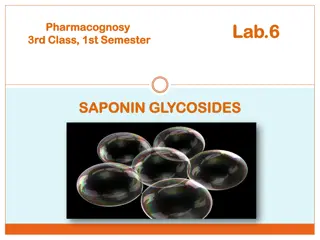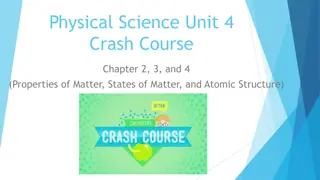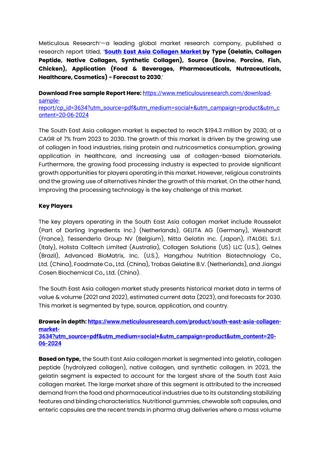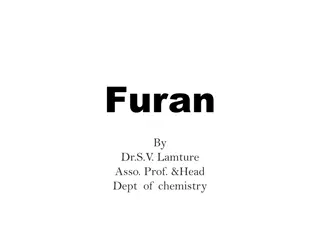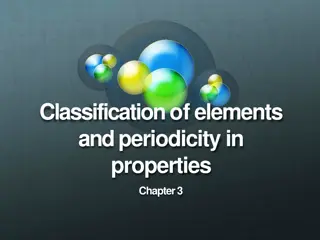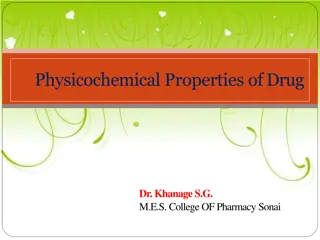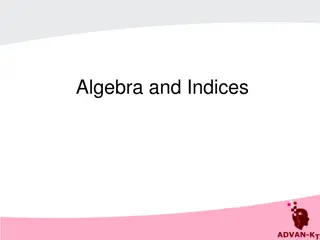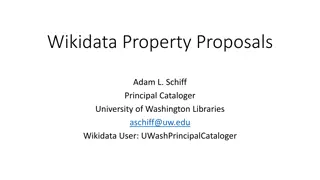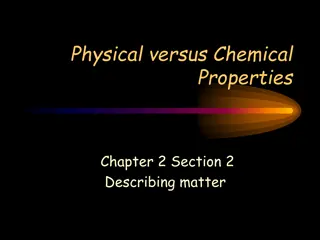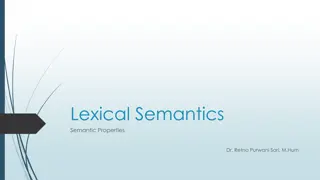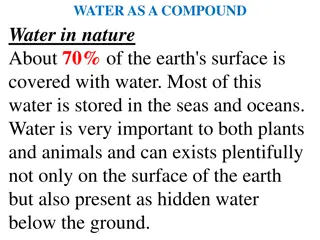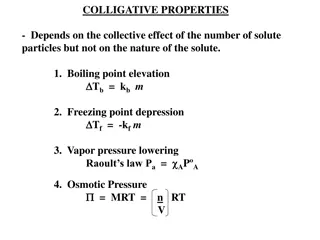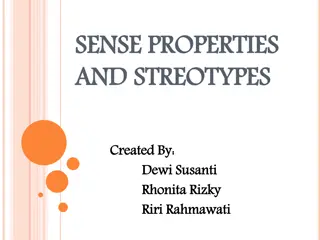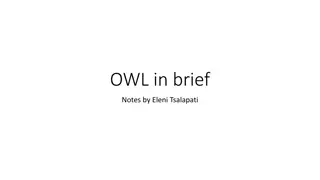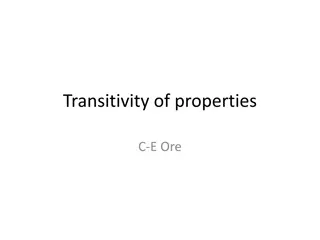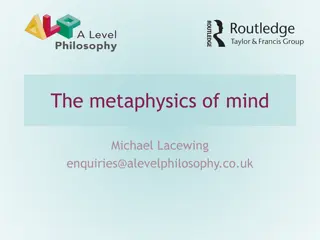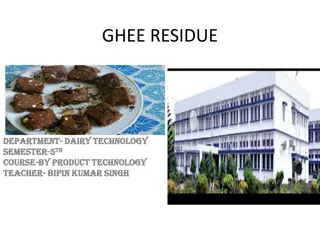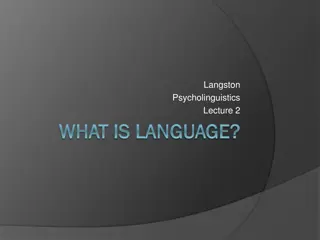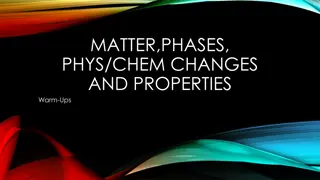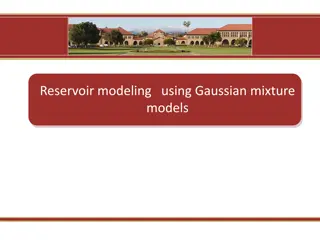Language Study Community – Enhance Your Language Skills
Joining a Language Study Group is a fantastic way to take your language learning to the next level. By leveraging the power of Group Study, you can immerse yourself in the language, enhance your understanding, and build confidence in your speaking abilities. Read full article \/\/explainlearning.com
1 views • 3 slides
Academic Language Demands and Supports in Instructional Planning
Academic Language Demands and Supports are crucial in educational settings to ensure comprehension and usage of language by students. This content discusses embedding language demands in lesson plans, providing language supports, and peer review activities to enhance academic language skills. The fo
6 views • 10 slides
The Significance of Media in Language Learning
Media plays a crucial role in language learning by raising awareness of the ideology behind linguistic structures and providing valuable information on society and culture. Linguists are drawn to media language for research purposes and to understand its impact on language use and attitudes. Media s
12 views • 5 slides
Understanding Translation: Key Concepts and Definitions
Translation involves transferring written text from one language to another, while interpreting deals with oral communication. Etymologically, the term "translation" comes from Latin meaning "to carry over." It is a process of replacing an original text with another in a different language. Translat
11 views • 76 slides
Understanding the Rule of Mixtures in Composite Materials
The Rule of Mixtures (ROM) is a weighted method for predicting the properties of composite materials, such as fiber-reinforced polymers (FRP). This method relies on assumptions regarding the homogeneity and properties of fibers and matrices. By combining volume fraction and properties linearly, the
5 views • 23 slides
Understanding Saponin Glycosides in Pharmacognosy: Properties and Applications
Saponin glycosides, found in various plants, are compounds with diverse benefits ranging from cholesterol regulation to potential anticancer properties. They form colloidal solutions in water and are used in soap manufacturing due to their unique properties. Additionally, saponins have bitter taste,
7 views • 18 slides
Understanding Properties and States of Matter in Physical Science
Matter is made up of elements that cannot be broken down further. Different mixtures have distinct properties, such as solutions, colloids, and suspensions. Physical properties like viscosity and density can be observed without changing the material's composition. Chemical properties, like flammabil
2 views • 15 slides
South East Asia Collagen
Collagen, with its unique properties, has been extensively used in food processing industries. These properties are usually categorized into two groups. First, the properties associated with its gelling behavior, such as texturizing, thickening, gel formation, and water binding capacity, and second,
0 views • 2 slides
Guidelines for Handling Case Properties and Seized Assets in Legal Proceedings
This informative content discusses the handling of case properties involved in offenses, including seizure, custody, disposal, and coordination among government departments. It covers various aspects such as the types of case properties, custody procedures, provisions under Section 516-A Cr.PC, and
0 views • 8 slides
Understanding Furan and Thiophene: Structures, Properties, and Uses
Furan and Thiophene are important heterocyclic organic compounds with distinct structures and properties. Furan, a five-membered aromatic ring, is used in specialty chemical production and has unique physical properties. Thiophene, a sulfur-containing compound, finds applications in agrochemicals an
2 views • 8 slides
Classification of Elements and Periodicity in Properties: Overview and Evolution
The journey of understanding the classification of elements and periodicity in properties begins with early laws like the Law of Triads and Newland's Law of Octaves. Mendeleev's Periodic Law revolutionized the organization of elements, leading to the modern periodic table. Discoveries of eka-alumini
3 views • 32 slides
Enhancing Language Learning Across the Curriculum in B.Ed. 1st Year Course
Language Across the Curriculum (LAC) emphasizes that language learning should occur across all subjects, not just in language classrooms. It highlights the importance of incorporating language development into every learning activity, fostering multilingualism in schools. Language plays a crucial ro
2 views • 34 slides
Understanding Physicochemical Properties of Drugs
The physicochemical properties of drugs play a crucial role in their pharmacological effects. These properties include physical and chemical characteristics that influence interactions with biomolecules. Solubility, partition coefficient, and dissociation constant are key factors affecting drug beha
1 views • 46 slides
Algebra Rules and Properties
Explore the fundamental rules and properties of algebra and indices, including commutative, associative, and distributive properties. Learn about negation, zero properties, and the zero factor property, illustrated with examples and common errors. Engage in activities to apply and test your understa
1 views • 21 slides
Understanding Wikidata Properties and Data Types
Learn about Wikidata properties and data types, their importance in structuring data, and how they are used to create statements and qualifiers in Wikidata. Explore the purpose of properties, their labels, descriptions, aliases, and data types such as items, strings, monolingual text, external ident
0 views • 26 slides
Understanding Physical and Chemical Properties of Matter
Explore the distinction between physical and chemical properties of matter in Chapter 2, Section 2. Physical properties can be observed without changing the substance's identity, such as color and density, while chemical properties require altering the substance to observe characteristics like react
5 views • 20 slides
Understanding Nonelectrolytes in Solutions
Physical properties of substances are classified into colligative, additive, and constitutive properties. Colligative properties depend on the number of particles in a solution and are similar for different nonelectrolytes. Additive properties are based on the total contribution of atoms, while cons
1 views • 14 slides
Understanding Semantic Properties in Lexical Semantics
Explore the concept of semantic properties in lexical semantics through examples involving word meanings and relationships. Learn how semantic properties form the basic building blocks of language construction, sharing common attributes among words while also showing contrastive distinctions. Dive i
0 views • 17 slides
Water as a Compound: Essential Properties and Properties
Water, a vital element covering 70% of the Earth, is composed of hydrogen and oxygen. It has various physical and chemical properties, acts as a universal solvent, and plays crucial roles in nature. From boiling and freezing points to chemical reactions, water's significance is undeniable. Its sourc
0 views • 63 slides
D-Block Elements: Properties and Classification in Chemistry
Welcome to the Department of Chemistry at Kisan Veer Mahavidyalaya, Wai. Explore the Chemistry of Elements of the 3d series, focusing on d-Block Elements and Transition Elements. Learn about their electronic structure, colored ions, magnetic properties, oxidation states, and complex formation. Under
0 views • 34 slides
2020 Company Confidential - Add-Ons and Variable Properties Guidelines
This document provides guidelines for add-ons and variable properties within the context of the 2020 Company Confidential data. It covers various aspects such as variable validations, logic return types, export/import considerations, and the handling of accessory items. The content emphasizes the pr
0 views • 39 slides
Speech and Language Developmental Milestones: A Bilingual/Multilingual Perspective
Speech and language developmental milestones are crucial for children, regardless of their home language. These milestones encompass receptive language, expressive language, pragmatics, and articulation and phonology. Understanding how a child hears and talks from birth to one year is essential, as
1 views • 23 slides
Understanding Colligative Properties in Solutions
Colligative properties in solutions depend on the total concentration of solute particles present, impacting properties such as boiling point elevation, freezing point depression, vapor pressure lowering, and osmotic pressure. Boiling point elevation is directly proportional to the number of solute
1 views • 19 slides
Understanding Physical and Chemical Properties of Matter
Explore the distinction between physical and chemical properties of matter in Chapter 15, Section 2. Learn to classify properties such as color, flammability, odor, shape, taste, density, and more. Understand how physical properties can be observed without altering the substance's identity, while ch
0 views • 17 slides
Understanding Sense Properties and Stereotypes in Language
Effective communication hinges on shared meanings of words. Disagreements over word meanings can hinder understanding. Analyzing examples like distinguishing between "killed" and "dead" showcases how language's sense properties shape communication. Exploring analytic, synthetic, and contradictory se
0 views • 14 slides
Introduction to Language Technologies at Jožef Stefan International Postgraduate School
This module on Knowledge Technologies at Jožef Stefan International Postgraduate School explores various aspects of Language Technologies, including Computational Linguistics, Natural Language Processing, and Human Language Technologies. The course covers computer processing of natural language, ap
0 views • 27 slides
Exploring Sociolinguistics: Language Variation and Social Factors
Sociolinguistics delves into the study of language variation influenced by social factors, examining the relationship between language and its social context. It explores various aspects like standard pronunciation, language choice, speech acts, language components, language variety, and factors suc
0 views • 73 slides
Understanding Assembly Language Programming for Computing Layers
Assembly language is a low-level programming language that enables direct interaction with a computer's hardware components. This content explores the fundamentals of assembly language, the relationship between human-readable machine language and binary code, an assembly language program for multipl
0 views • 31 slides
Understanding Web Ontology Language (OWL) in a Nutshell
Web Ontology Language (OWL) is a powerful tool for ontology modeling, allowing the creation of complex structures and relationships. OWL encompasses entities, expressions, and properties, enabling detailed descriptions of domains through axioms. The language supports both object and data properties,
0 views • 39 slides
Understanding Language Anxiety in Foreign Language Learning and Teaching
Explore the impact of language anxiety on students and teachers in foreign language learning and teaching contexts through insights from Dr. Christina Gkonou's research. Delve into the theoretical background, implications for language education, and real-life experiences shared at the Essex Language
0 views • 25 slides
Understanding Transitivity of Properties in Typed Systems
Exploring the concept of transitivity in properties within a typed system, this content delves into explicit and possibly transitive properties, showcasing how properties relate to each other and how they can be implicitly or explicitly defined. Through examples and explanations, the content provide
0 views • 18 slides
Comprehensive Course on Material Properties and Science
Delve into the world of material properties and science with a course led by Professor Shyan-Lung Chung from the Department of Chemical Engineering at National Cheng Kung University. Explore topics ranging from atomic scale structures to mechanical properties and their applications, supported by opt
0 views • 10 slides
Exploring the Metaphysics of Mind: Substance, Properties, and Views
Delve into the realm of metaphysics as it pertains to the nature of reality, with a focus on substance and properties. Explore the concepts of substance dualism, monisms like idealism and materialism, and the debate around mental properties and their relation to physical properties. Consider various
0 views • 8 slides
Understanding Heat Treatment in Steel Alloys
Heat treatment is a crucial method to modify the physical and chemical properties of materials like steel. The amount of carbon in plain carbon steel determines the heat treatment required, influencing properties like hardness and machinability. Different types of heat treatment include annealing, n
0 views • 21 slides
Understanding Ghee Residue: Properties, Yield, and Applications
Titled "Understanding Ghee Residue: Properties, Yield, and Applications", the content delves into the by-product of ghee manufacturing known as ghee residue. Highlighting its physico-chemical and functional properties, lipid content, milk sugars, flavoring profiles, antioxidant properties, and fat r
0 views • 12 slides
Understanding Language Properties and Definitions
Language is defined by its unique properties such as rapid fading, interchangeability, feedback, semanticity, arbitrariness, discreteness, displacement, productivity, cultural transmission, duality, prevarication, reflexiveness, and learnability. These properties help distinguish human language from
0 views • 19 slides
Entity-specific Rankings of Knowledge Base Properties
Towards entity-specific rankings of knowledge base properties, this research explores the problem of property ranking for entities based on their attributes and properties. Various applications in knowledge base curation and natural language generation are discussed, along with related work in entit
0 views • 26 slides
Near-UV Satellite Observations for Retrieving Aerosol Properties
Near-UV satellite observations offer a valuable method for retrieving aerosol properties, including aerosol optical depth, absorption, layer height, and surface albedo. These observations provide advantages like sensitivity to aerosol properties and negligible gas absorption interference. However, c
0 views • 16 slides
Understanding Matter: Properties, Changes, and Classification
Explore the classification of properties and changes in matter, including physical and chemical properties, extensive and intensive properties, pure substances versus mixtures, and homogeneous versus heterogeneous mixtures. Learn about pollution-producing processes involving physical changes and the
0 views • 7 slides
Reservoir Modeling Using Gaussian Mixture Models
In the field of reservoir modeling, Gaussian mixture models offer a powerful approach to estimating rock properties such as porosity, sand/clay content, and saturations using seismic data. This analytical solution of the Bayesian linear inverse problem provides insights into modeling reservoir prope
0 views • 10 slides





